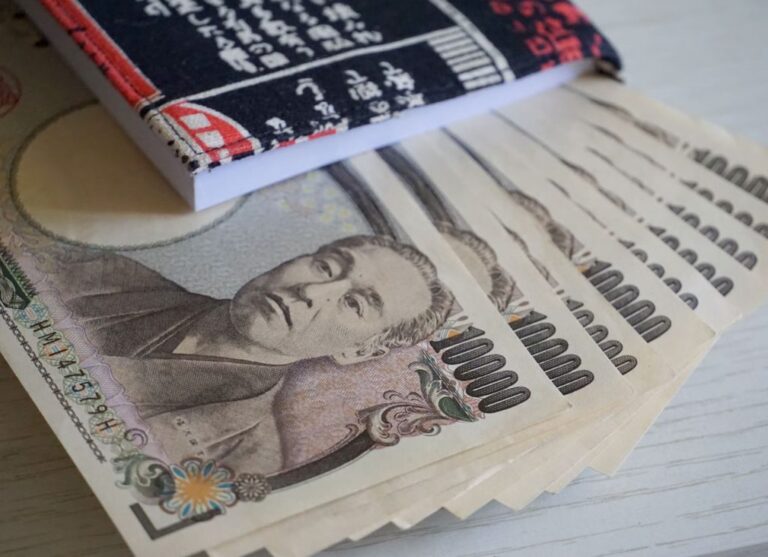
Morning Brief – A new Gold Standard?
Global stocks flinched this week as the US Administration ordered the close of the Chinese consulate in Houston. The abrupt closure was justified on grounds of national defence and in particular spying concerns. China has promised to retaliate if Washington does not reconsider its decision, marking the closure a serious violation of the international order. Sino-US tensions have been rising following China’s imposition of a Security Law on the territory of Hong Kong with commentators marking the materialisation of these new tensions on US soil as a tipping point in this saga.
Given the Chinese Renminbi’s (CNY) peg to the US Dollar, transpacific risk is difficult to detect within the USDCNY currency pair. A good barometer for this tension is AUDJPY, the rate of which is free to fluctuate based upon fundamentals and trading activity. The Aussie Dollar is a proxy for the Chinese economy due to its high industrial exposure to China and integrated supply chains. The Japanese Yen on the other hand, AUDJPY is a proxy for risk as a highly defensive asset with strong safe haven appeal. AUDJPY higher amidst Chinese tensions signals robust or improving risk conditions where the fx market is shrugging off the tensions. A falling AUDJPY signals to the world a more defensive tone and will likely spill over into equities.
AUDJPY is elevated from its pandemic lows at present showing that the improvement in the status of the pandemic globally is overwhelming idiosyncratic Chinese tensions. However, the pair is approaching a level that it has tried and failed to break through twice already this year. Failure to break through this level (76.8) will confirm a triple top and give rise to stronger Yen prices. When Chinese tensions were on the rise last year we commented on the scope of a potential inflammation in transpacific relations and the cessation of trade between the world’s two largest economies. The big weapon at stake: US treasuries.
Pegging the Yuan to the Dollar gives China a (un)competitive advantage over the rest of the world. Holding the USDCNY exchange rate above its fair value by an estimated 10-15% has the effect of making Chinese exports look cheaper overseas. To pay for it, however, there have to be hefty Capital account deficits and a transfer of money from China to the United States. The best way to achieve this China has found is the acquisition of Treasury bills meaning that China is traditionally the largest holder of US government debt outside of the States. This weapon can be used to China’s advantage if it’s disposal of the asset could lead to destructive forces within the United States’ government funding markets. It can also backfire if the US takes measures to undermine the value of China’s reserves. The potential ticking time bomb has prompted some commentators to begin discussing the end of the USDCNY peg.
Against a backdrop of a weakening US Dollar and a rising value of Gold, commentators have been weighing the possibility of a Yuan pegged to the value of the precious commodity. China also holds reserves of Gold worth over $117bn. Compared to over $1tn of US Treasuries in the coffers, China’s gold reserves are miniscule. If China was to decouple its currency from the US Dollar its holdings of Gold would have to increase dramatically. XAU/USD, the exchange rate of a Troy Ounce of Gold in Dollar terms would also have a considerable bounce. With the implied volatility of Gold considerably higher than that of a US Dollar (nearly 10x in fact), the move seems inconceivable as the pairing could destabilise the very trade it is in place to encourage. But are these not strange times in which we live?
Discussion and Analysis by Charles Porter

Click Here to Subscribe to the SGM-FX Newsletter
Related Insights

Morning Brief – Japanese Yen
Japanese Yen With JPY at a new 34 year low versus EUR, the market is set for an ambush by the Bank of Japan if it acts today at the end of their Policy Meeting to support the Yen. The reason that the market is susceptible is because it has convinced itself that the BoJ […]

Morning Brief – Coalition
Coalition This briefing is about South Africa and the Rand, which frequently proves to be one of the more divisive subjects within our roster of currencies. In particular, with the election looming, this will be about South African governance. Not from a political or human perspective about what may be the best long term outcome […]

Morning Brief – US Tariffs on Chinese Imports
US Tariffs on Chinese Imports Recently we wrote about how Mexico has become the Number One trade partner for the USA. It now transpires that Mexico may have had what is known as a little assist with their numbers: the statistics for the number of 20 foot shipping containers for the first three Quarters of […]



 Humphrey Percy
Humphrey Percy Charles Porter
Charles Porter